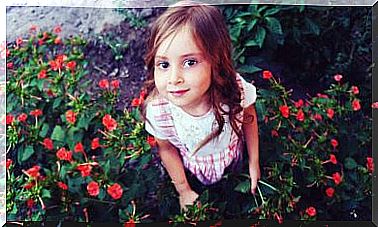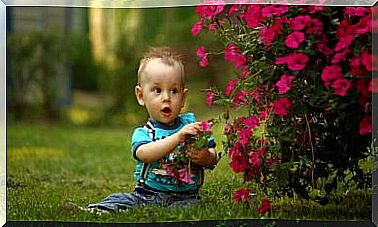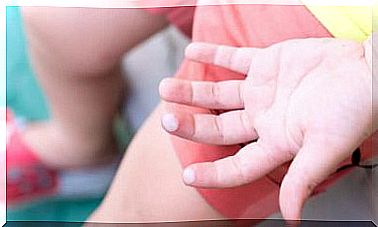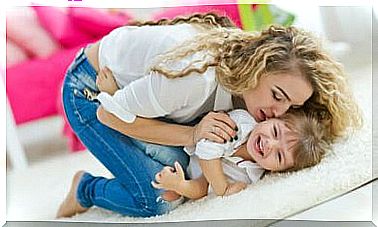Skin Irritations In Babies: What To Do?
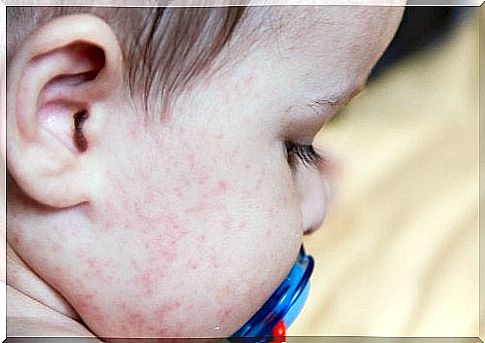
Allergic reactions, dermatitis, eczema or pimples are common in babies’ first months of life. Children’s skin is very delicate, so it is advisable to be aware of the most common skin irritations that may appear.
Appropriate treatment varies depending on the type of rash that appears. Therefore, learning to recognize skin irritations in babies, as well as knowing how to treat them, will be very helpful.
Skin irritations in babies: what are they?
There are several types of skin irritations in babies. Depending on which one, there will be a certain type of treatment. Among the most recognized skin irritations are miliaria or prickly heat and rashes, known as atopic dermatitis.
Miliaria: how to treat
Miliaria is one of the most common skin irritations in babies. This condition occurs due to the immaturity of the sweat glands in the first years of a child’s life. An example of this is when we wrap the baby too tightly so that he doesn’t get cold.
These irritations also happen in conditions opposite to cold, that is, when children are in extremely hot environments with high temperatures.
Usually, miliaria resolves on its own, with no need to apply any treatment. In these cases, it is important to eliminate or remove the factors that make the baby hot.
When the irritation becomes deeper and more intense, and if the inflammation gets worse, an astringent cream can be applied. In more extreme cases, it is recommended to visit a dermatologist or pediatrician, who can apply a topical corticosteroid.
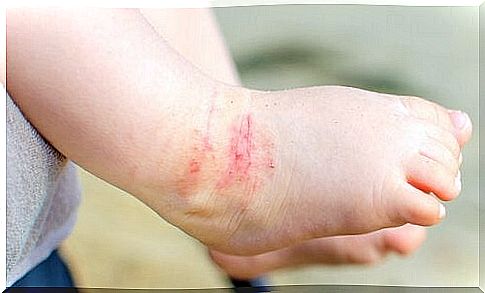
Atopic dermatitis: what does it consist of?
When children have a rash and itchiness, we are faced with atopic dermatitis. This is one of the most common skin irritations seen in babies. It is the most common type of eczema in children’s first years of life.
In cases of atopic dermatitis, it is very important to consult a specialized physician, be it a dermatologist or pediatrician. The professional, in many of these cases, will prescribe a topical corticosteroid.
Unlike other skin conditions, atopic dermatitis is not contagious. It mainly occurs in skin types that are very reactive to external agents or that are irritated in certain situations. These are irritations that must be dealt with as soon as possible.
How to treat atopic dermatitis?
The treatment given to atopic dermatitis is individual and will depend on the degree of irritation the baby has. There are times when dermatitis is very mild and can be controlled with hydration alone. In other cases, the standard treatment is the use of topical corticosteroids.
In more extreme cases, when steroids do not work, immunosuppressants are given orally. However, any treatment must be supervised and controlled by a specialized healthcare professional.
Recommendations to avoid skin irritations in babies
First, it is necessary to identify the irritating and triggering factors for irritation. This is really helpful to know what to consider in order to avoid skin irritations in babies. We should, therefore, try to locate the factors that trigger them, such as dry skin, stress, infections, or irritants.
It is also necessary to take into account the type of clothing that is worn: this is a very important aspect. Any tight, rough and irritating clothing, such as knitwear, leather or synthetic fabric, is very unfavorable for dermatologically complicated skin.
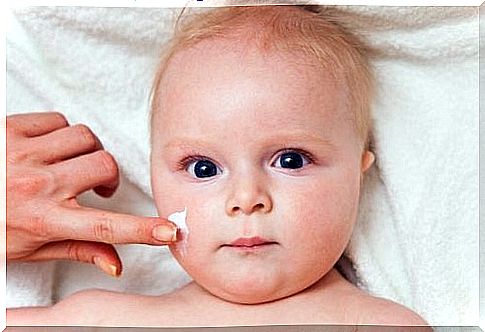
The ideal is to dress babies in clothes made of cotton to avoid irritation. In this regard, you should also avoid wrapping babies excessively, as this tends to cause inconvenience.
When washing clothes, it is convenient to use a mild soap or washing powder. Also, it is essential to use a good non-chlorine bleach and avoid overuse of softeners. This way, the contact of clothes with the skin will not cause any type of allergy.
In the home environment, it is advisable to avoid excessive exposure to dust that is generated in the home and that is in the environment, as this can cause eczema. For babies with more fragile skin, it is advisable to keep pets out of the house, as their fur often causes allergic reactions.
In short
Skin irritations in babies are more common and routine than is believed. Therefore, it is always good to be informed about them to know what care babies need if they have this problem.


